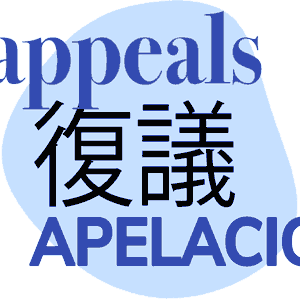CA Interpreters, Submit Those Second Bill Reviews!

Many providers of interpreter services in California are forgoing their legal right to correct reimbursement, potentially leaving large amounts of revenue on the table. Because interpreter services are not covered under California’s Official Medical Fee Schedule (OMFS) for workers’ comp, some interpreters incorrectly believe that Second Review appeals do not apply to interpreter services.
However, a 2019 court case established that bills for interpreter services are subject to Second Review, just like any other bills for workers’ comp medical or Medical-Legal services. This court ruling emphasizes two critical facts for interpreters:
- Submitting Second Review appeals for incorrectly denied or adjusted bills is likely to recover significant revenue for providers of interpreter services.
- Failing to submit Second Review appeals precludes any other attempts to secure payment after an incorrect denial or adjustment.
If you’re providing interpreter services in California but not submitting Second Review in response to incorrect denials or underpayments, you are likely depriving your practice of hard-earned revenue. Read on to learn how to submit these important appeals.
CA Appeals Court: Interpreters Must Submit SBRs
Second Review appeals are a (sometimes shockingly) important source of revenue for providers who treat injured workers.
Or, more accurately, Second Review protects providers’ rights to the revenue they’ve already earned in the face of errors, non-compliance, and general skullduggery by claims administrators.
Interpreter services are a vital component of workers’ comp treatment. However, California fails to include interpreter services in the OMFS. Because of this, interpreter providers understandably assumed that a Second Review is not required when disputing incorrect reimbursements. California Code of Regulations (CCR) Section 9792.5.4 states that workers’ comp bills are subject to Second Review when:
- The claims administrator authorized the services, and
- There is an applicable fee schedule for the services in question
This would seem to disqualify interpreter services, which are not included in any of the seven fee schedules that collectively make up the OMFS. However, in Meadowbrook Ins. v WCAB, a California appeals court found that:
- California Code of Regulations (CCR) Section 9795.3, which establishes “reasonable” fees for interpreter services, serves as the “fee schedule” for billing and appeal purposes.
- Providers whose bills for interpreter services are incorrectly denied or adjusted may submit Second Review appeals to obtain correct payment.
- Providers who fail to submit Second Review appeals — including interpreters — forfeit their right to file liens for payment or request Independent Bill Review (IBR).
In other words, when handling improper denials or reductions in payment, bills for interpreter services are no different than bills for other workers’ comp services.
How to Submit Second Review Appeals
CCR Section 9792.5.5 and California Labor Code Section 4603.2 contain all the legal and regulatory details regarding Second Review appeals. The most important rules are as follows:
- Providers, including interpreters, must submit Second Review appeals within 90 days of receiving the Explanation of Review (EOR) from the claims administrator in response to the bill.
- The appeal must be submitted in the same manner (i.e., electronically or non-electronically) as the original bill.
- For paper bills for medical treatment, the SBR-1 form is mandatory. For electronic bills, the SBR-1 form is not compulsory but strongly recommended.
- Refrain from including any new dates of services or new billing codes in an appeal.
- Submit one appeal per original bill.
- The claims administrator must respond to the Second Review appeal with a final EOR within 14 calendar days.
If the Second Review appeal fails to result in correct reimbursement, the provider may escalate the dispute to IBR — but only if the Second Review process has played out as described above.
Interpreter Services for Medical-Legal Disputes
Just as with medical treatment, providers of interpreter services have the same right to correct reimbursement in a Medical-Legal context — and are subject to the same appeals process.
With CCR §9795.3 serving as the “fee schedule” (so to speak), interpreters must submit Second Review appeals for improperly denied or reduced payment. There are only two substantive differences between a Medical-Legal payment dispute and a medical treatment payment dispute:
- The provider must submit an appeal for a Medical-Legal bill using the SBR-1 form.
- Payment for the original bill for Medical-Legal services is due in 60 calendar days — unlike electronically submitted bills for medical treatment, which must be paid in 15 working days.
The excellent news is that submitting Second Review appeals is incredibly quick and easy for daisyBillers.
daisyBill will populate and submit a completed SBR-1 in just a few clicks. As so many daisyBillers have discovered, the amount of revenue recovered via Second Review — considering the minimal effort of submitting the appeal with our software — makes it a no-brainer.
Bottom line: if you provide interpreter services in California, do not let improper denials or reductions slide.
daisyBill makes workers’ comp billing easier, faster, and less costly. Request a free demonstration below.
REQUEST DEMO
DaisyBill provides content as an insightful service to its readers and clients. It does not offer legal advice and cannot guarantee the accuracy or suitability of its content for a particular purpose.


.gif)